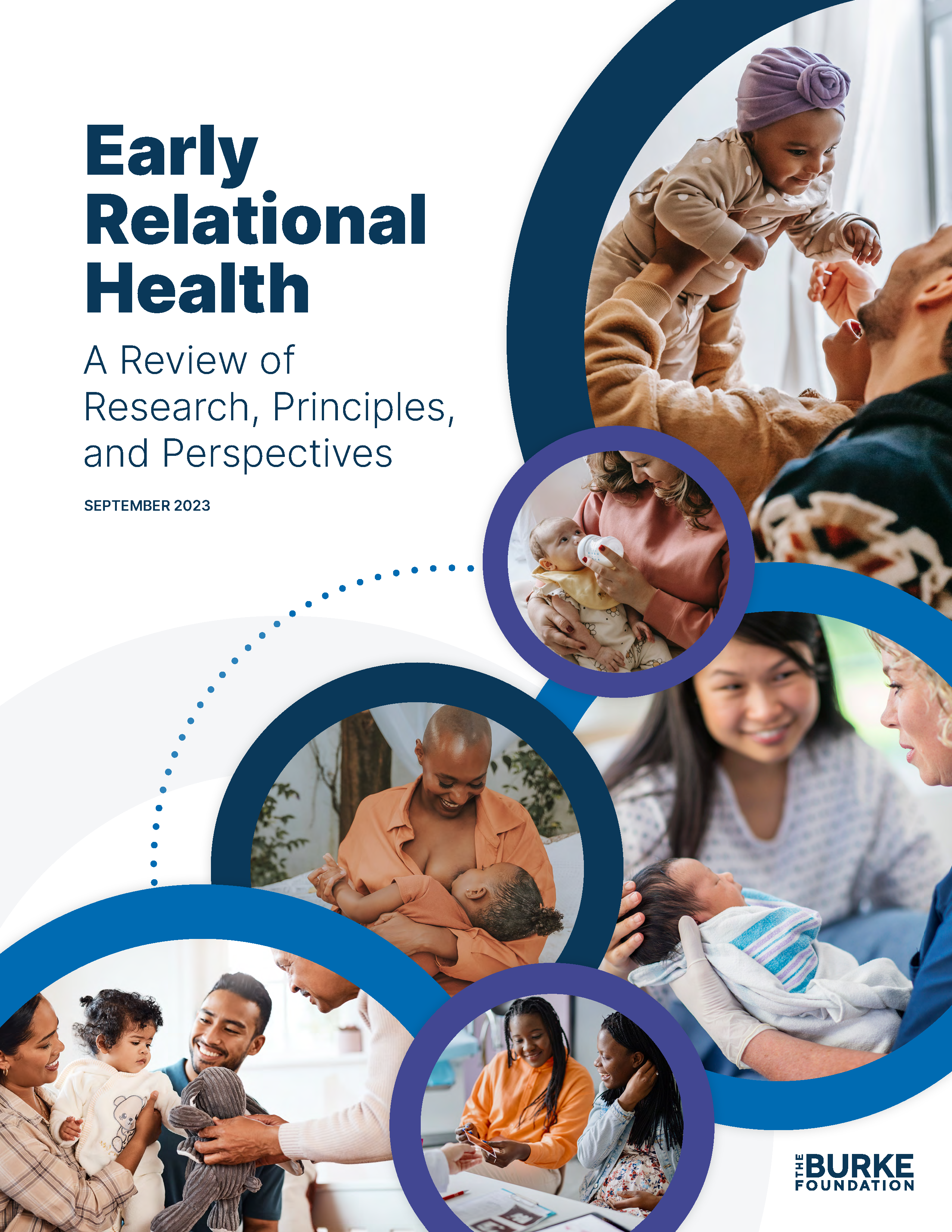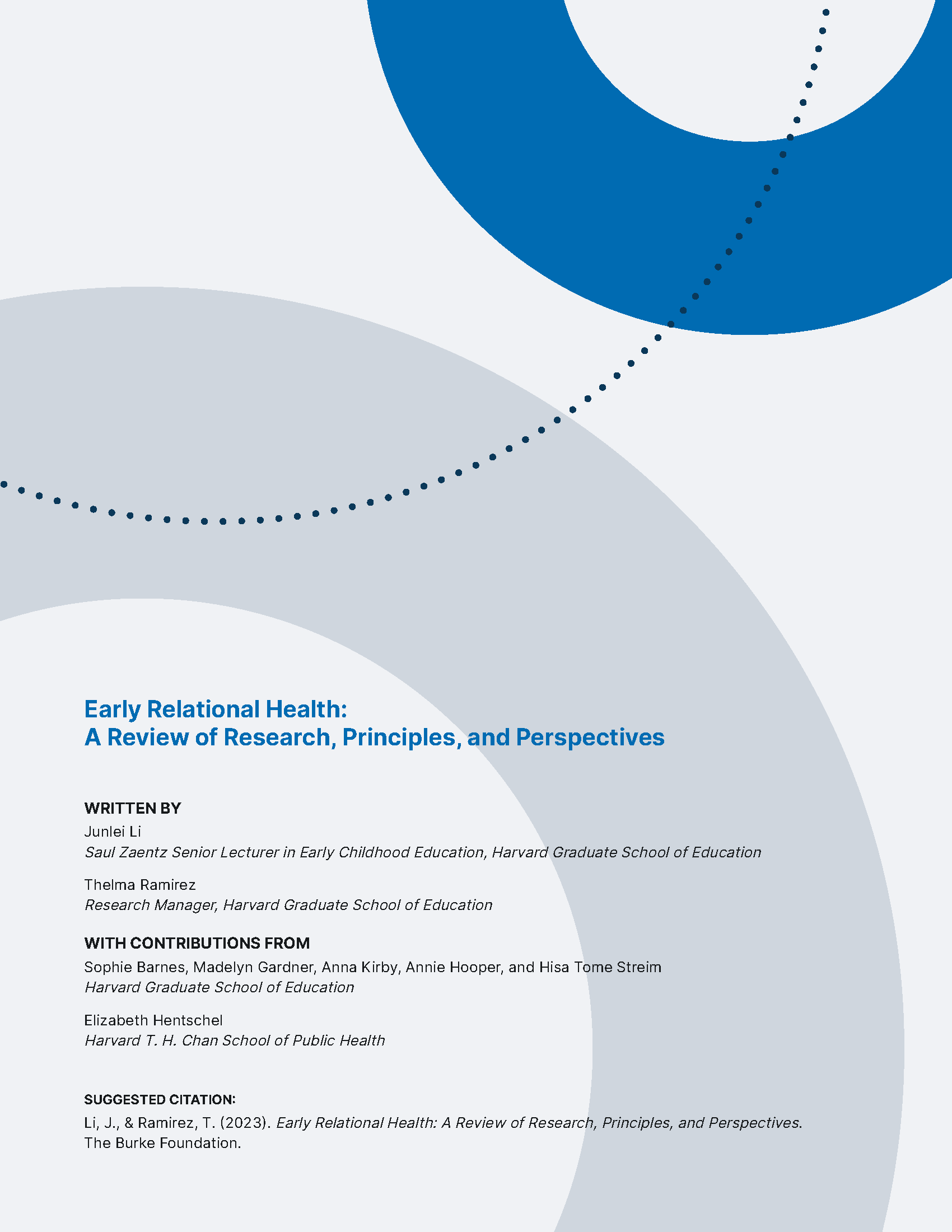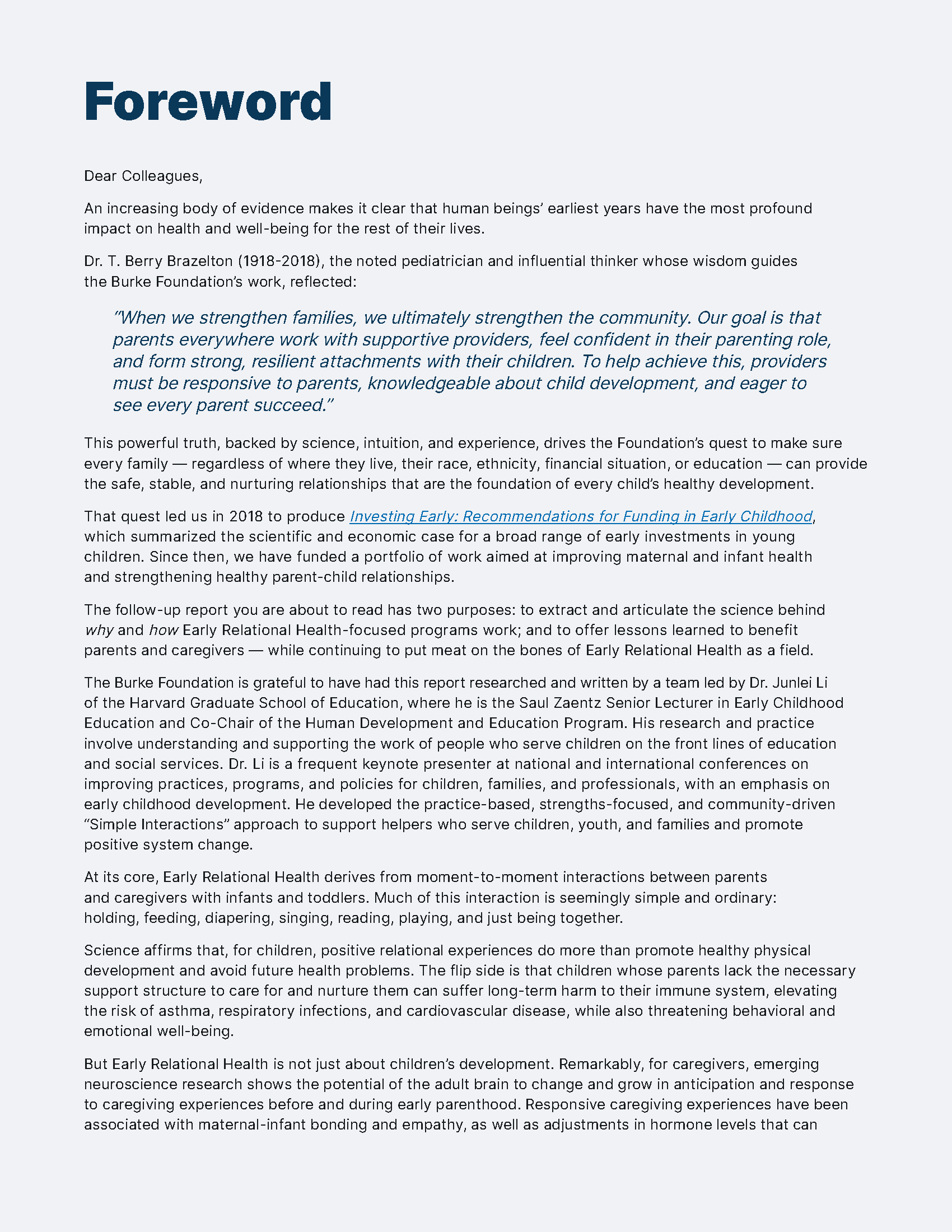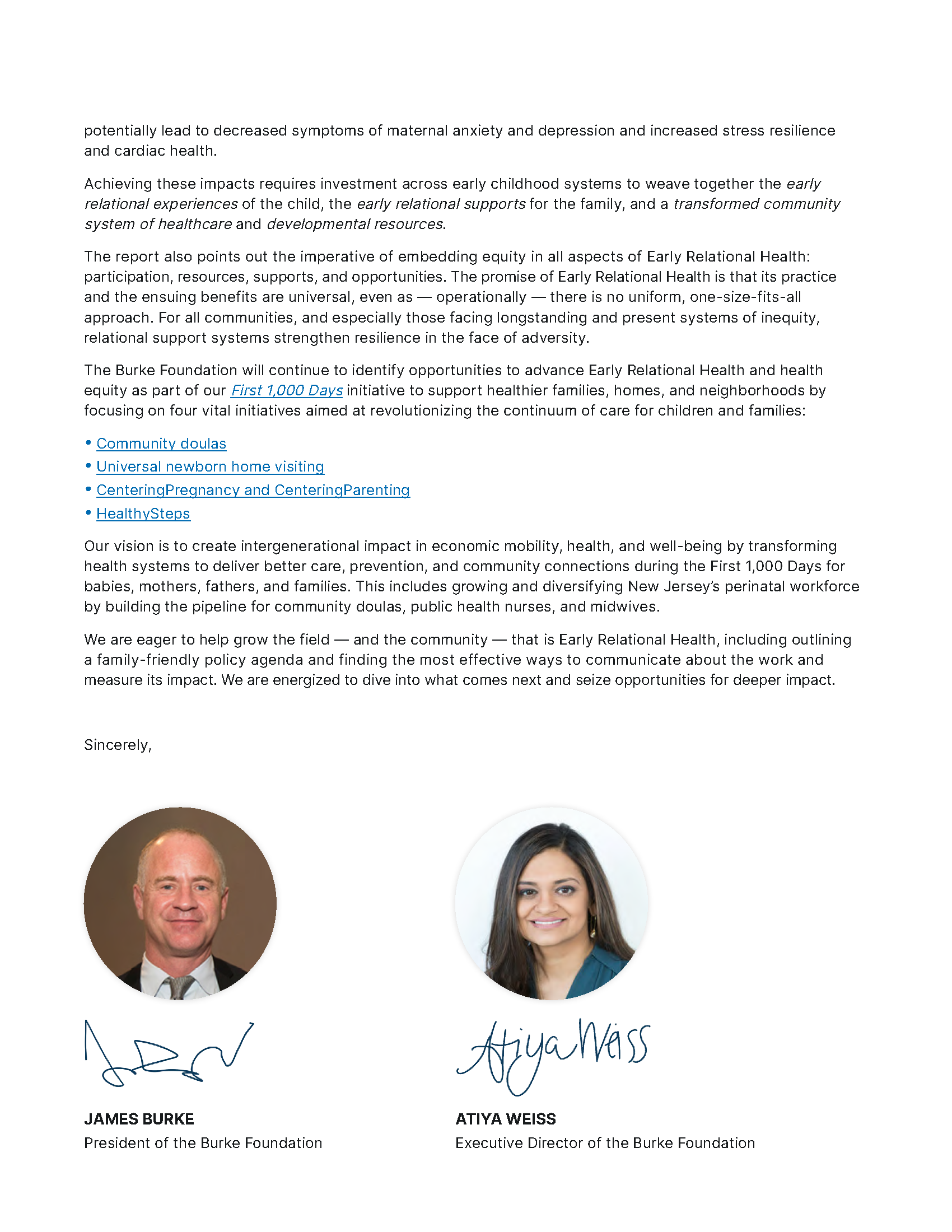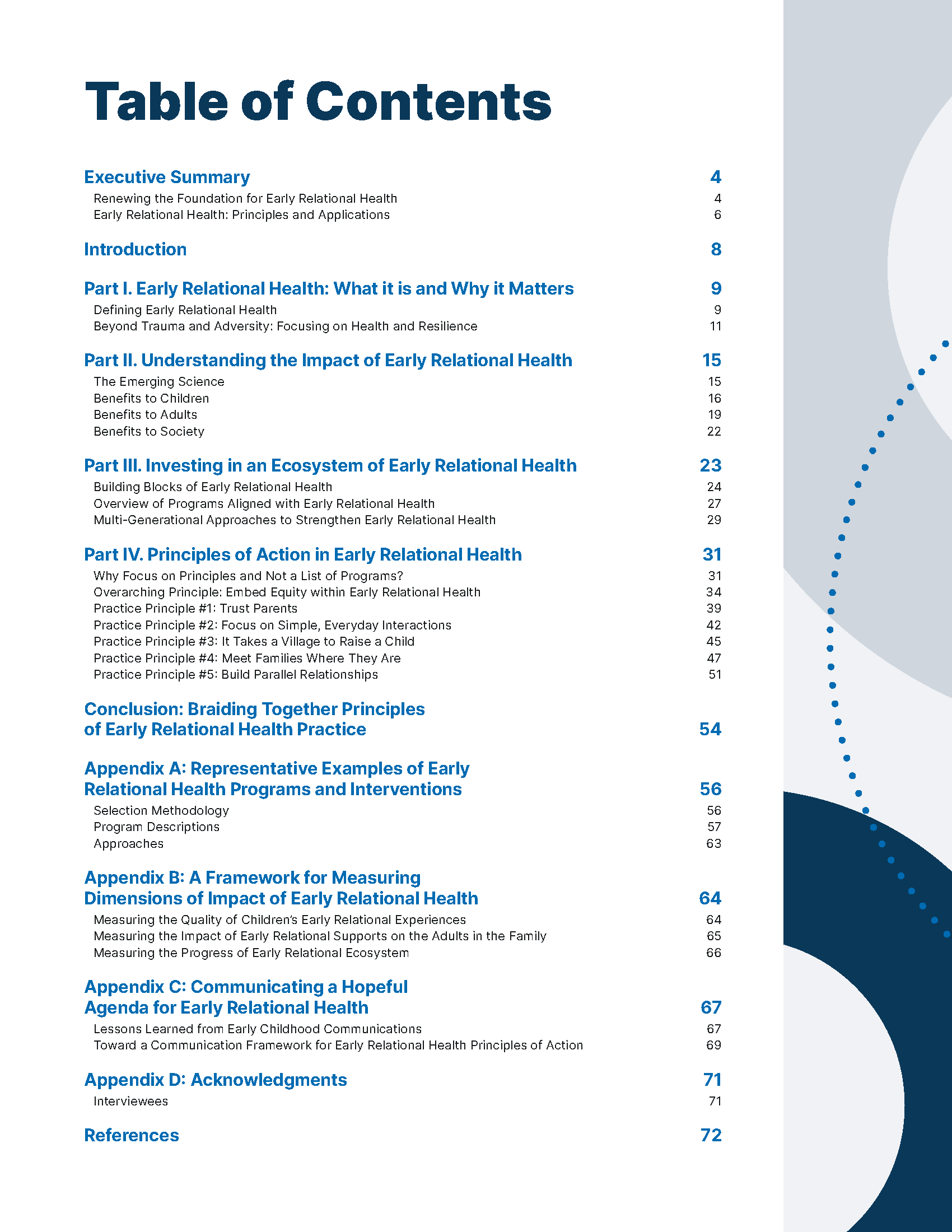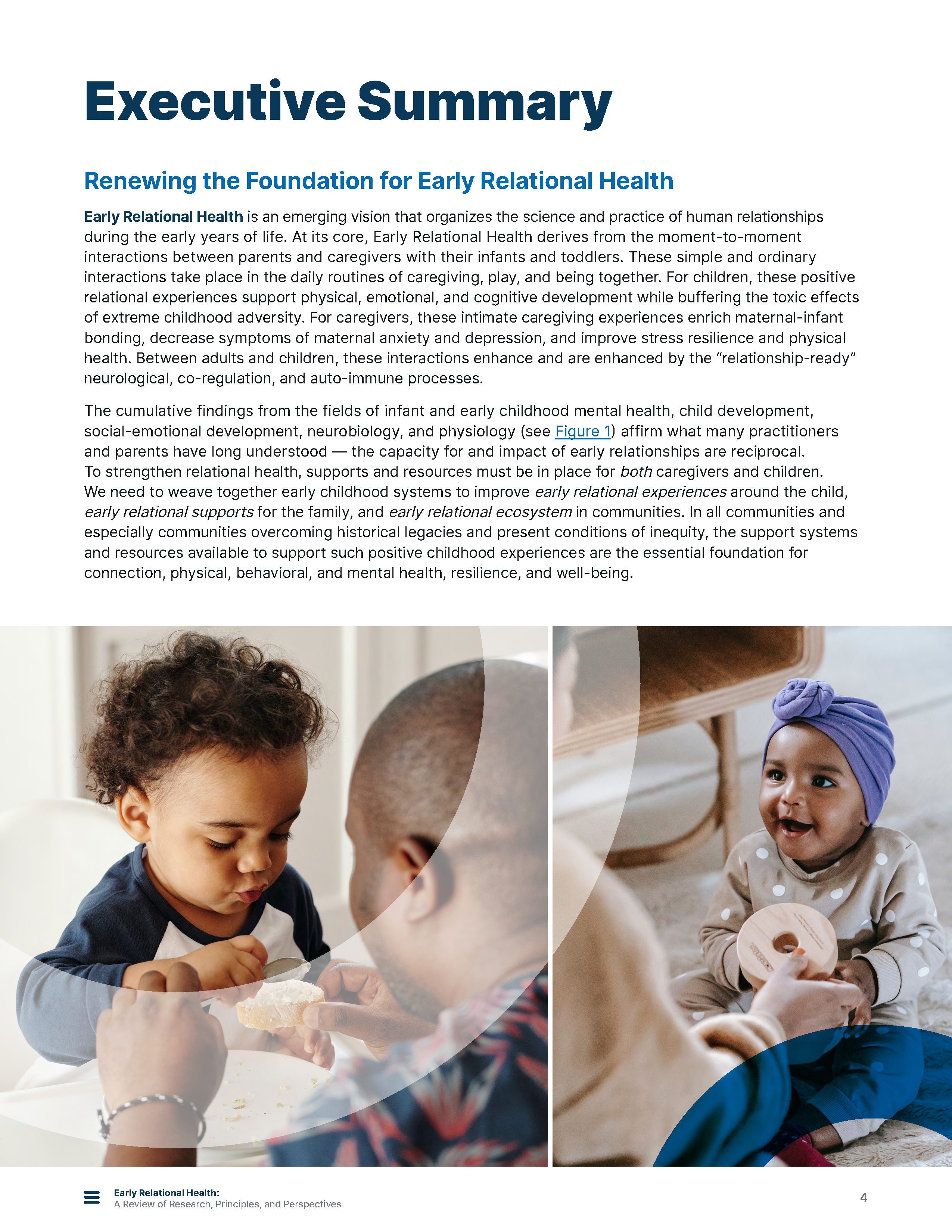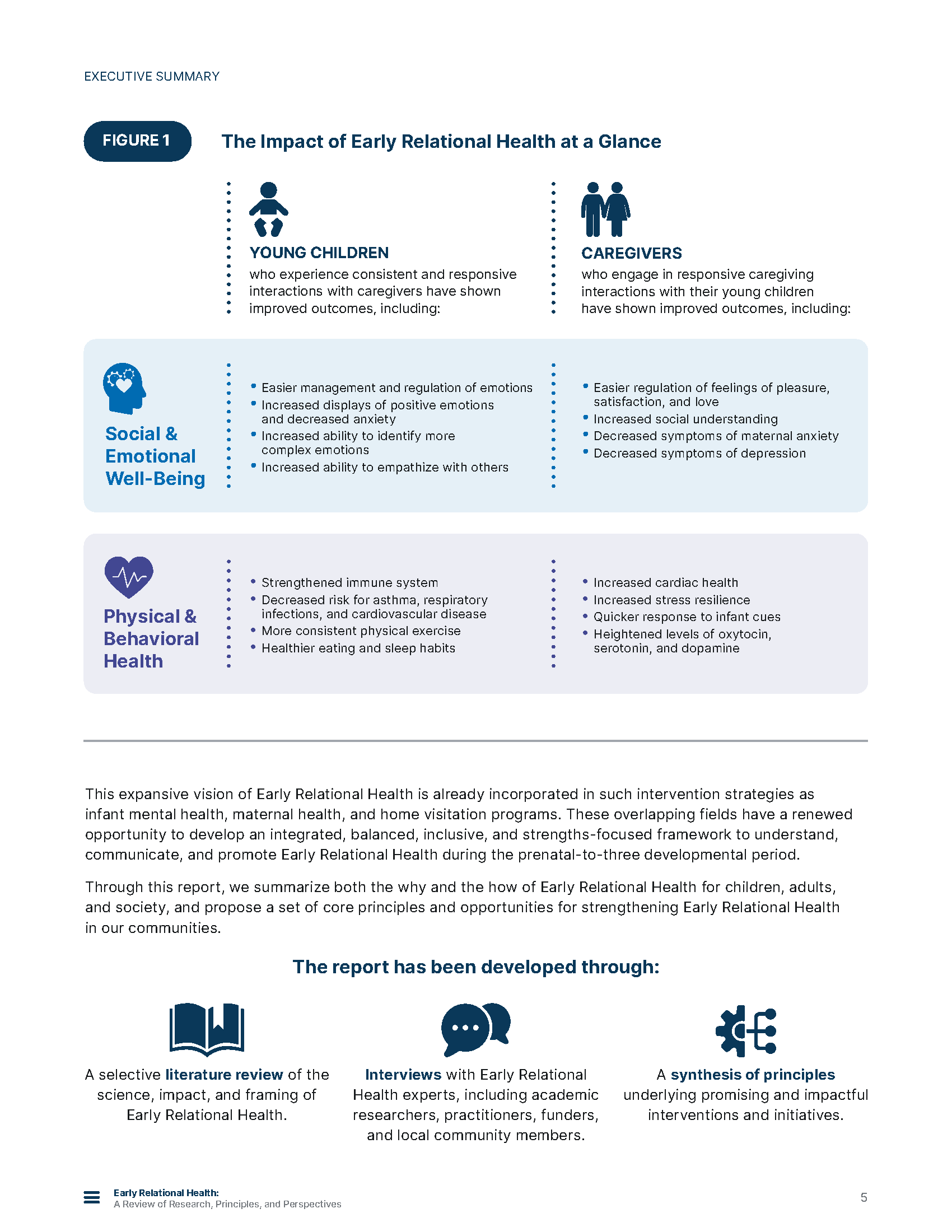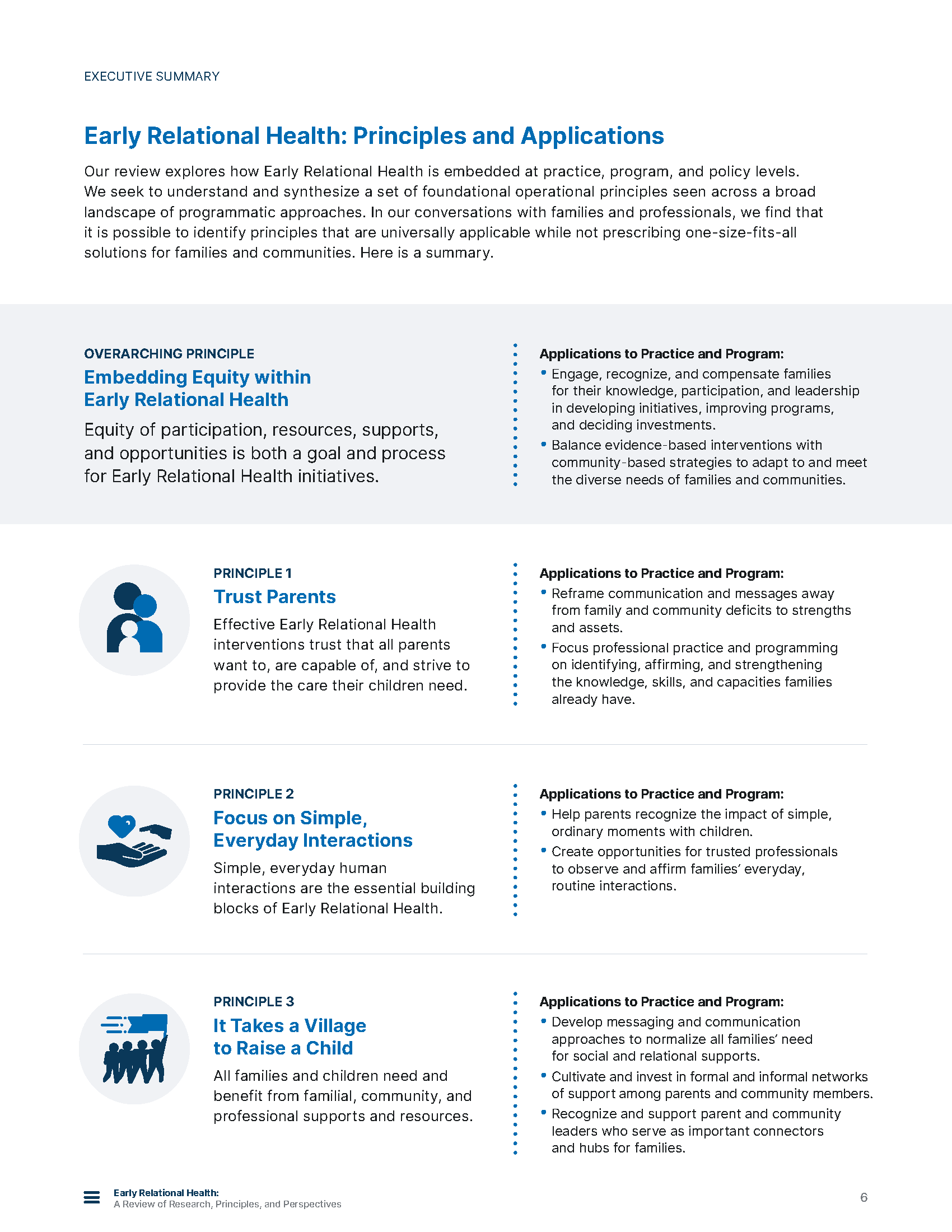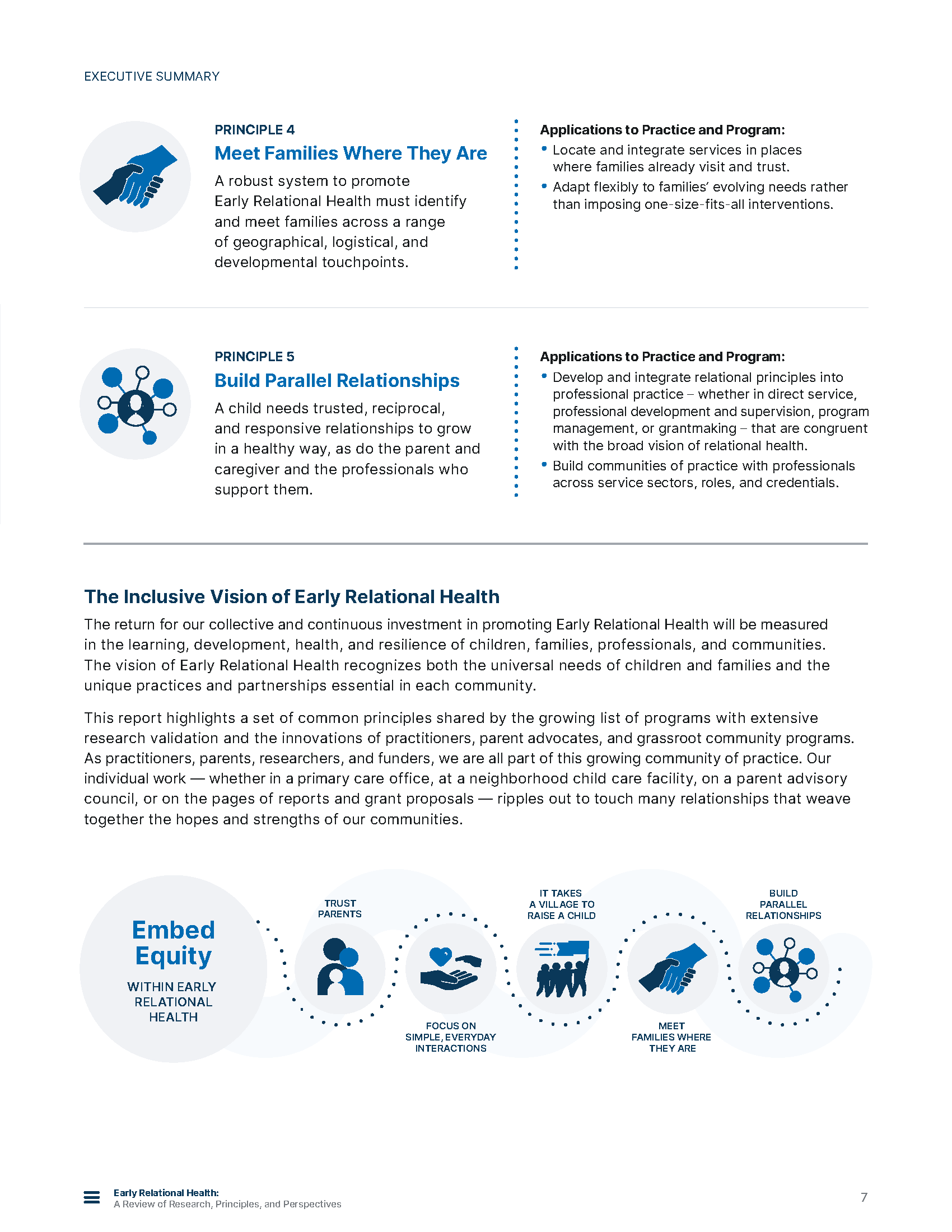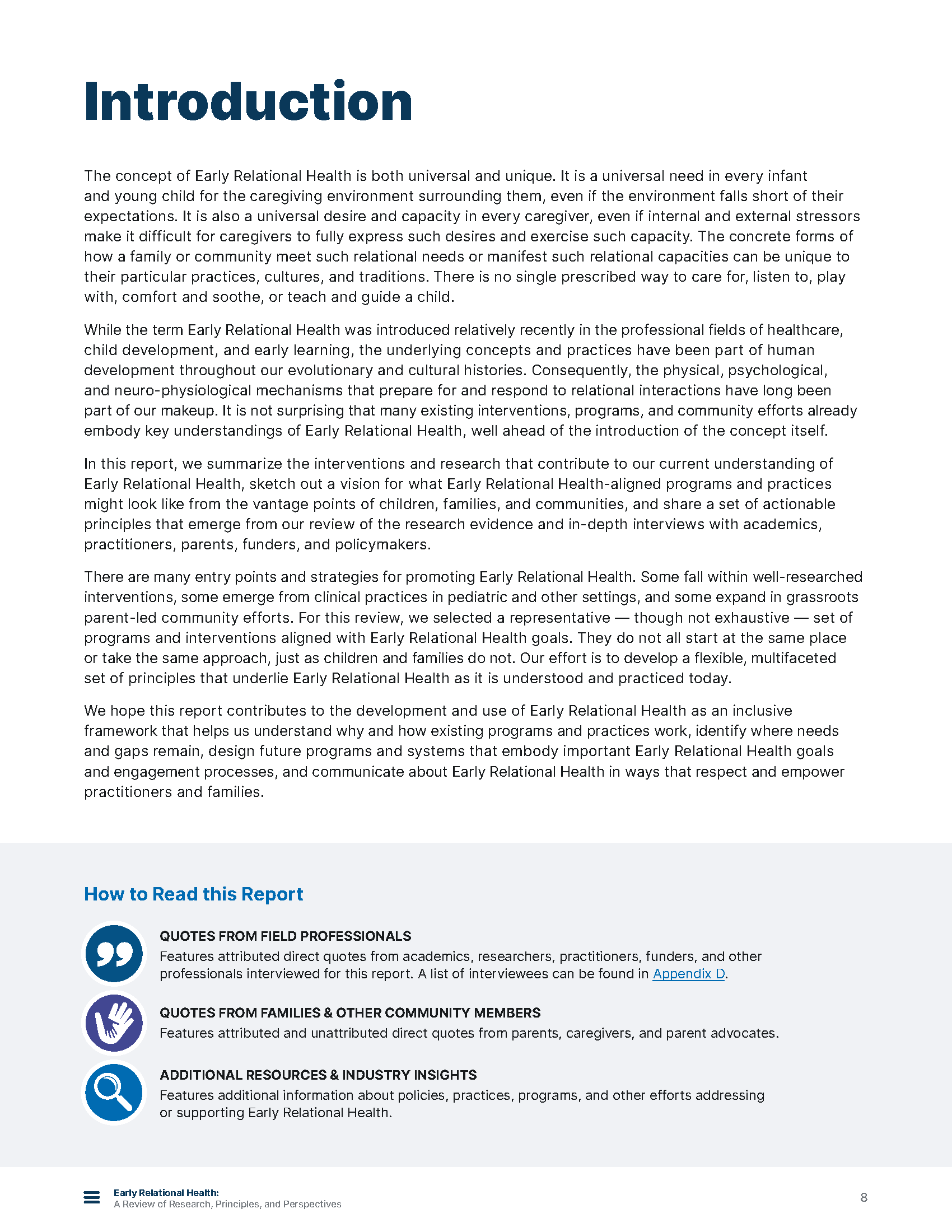Research Spotlight: The Earliest Years
Early Relational Health: A Review of Research, Principles, and Perspectives
In their 2023 report, Early Relational Health: A Review of Research Principles and Perspectives, lead authors Dr. Junlei Li and Thelma Ramirez from the Harvard University Graduate School of Education explore the science and practical applications of Early Relational Health, presenting a valuable resource for practitioners working to advance the health and well-being of children and families.
“Early Relational Health is universally important. All children need positive, healthy experiences to thrive. The capacity of families and communities to support and maintain safe, stable, nurturing relationships are biological necessities. Kids must feel safe and connected not only to buffer adversity but also to build the skills needed to be resilient.”
– Dr. Andrew Garner, primary care pediatrician, clinical professor, Case Western Reserve University
“It’s estimated that adverse childhood events cost the US economy $748 billion annually. It’s clear that more must be done on the front end to prevent adverse child experiences, developmental adversity and trauma. Promoting Early Relational Health is one important tool.”
– Jesse Kohler, executive director, Campaign for Trauma-Informed Policy and Practice
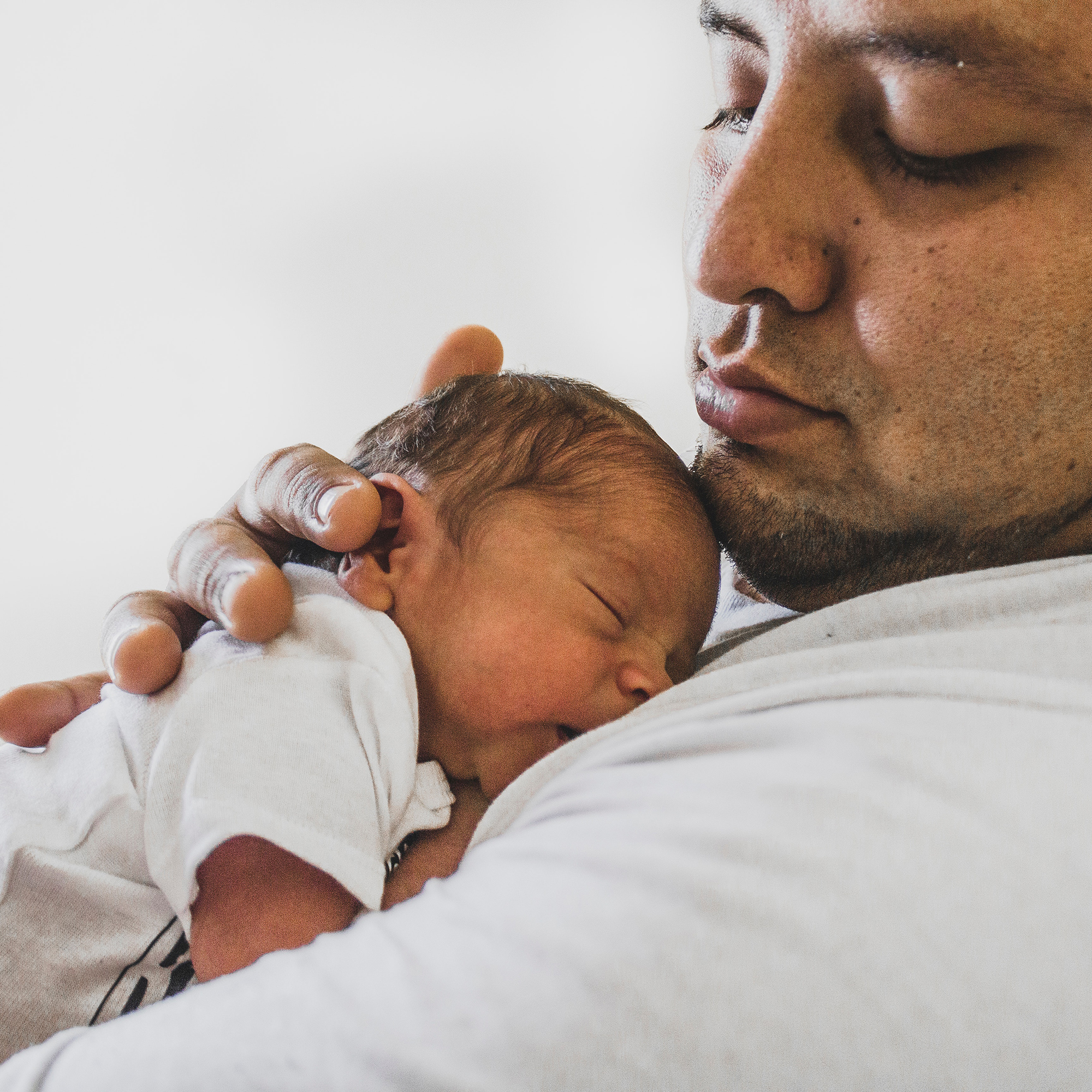
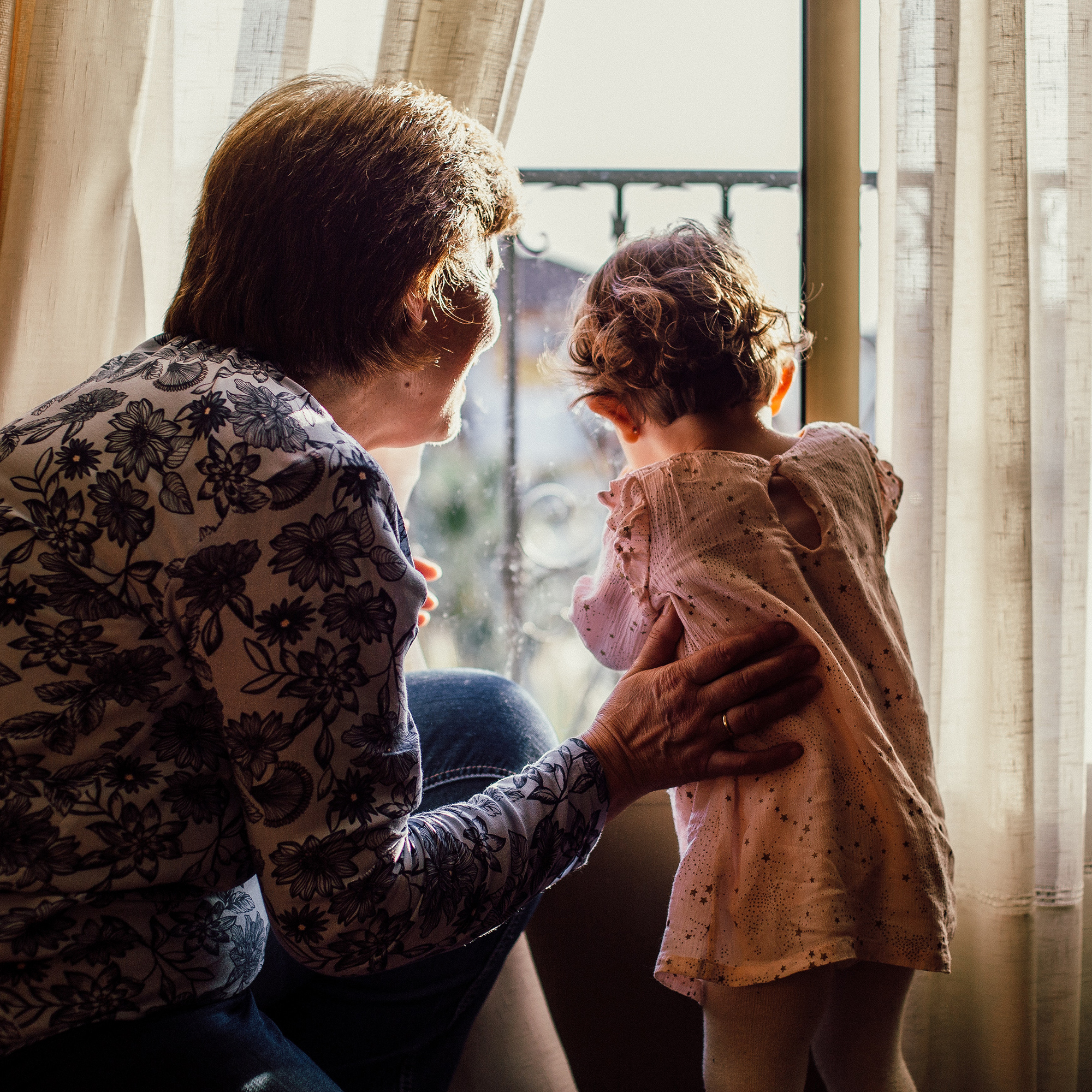

Report Summary
Early relationships are the keys to lifelong health and well-being and essential to protecting children and families from adversity. Early Relational Health is critical to the ability of children – and their caregivers – to thrive during the first 1,000 days from pregnancy through age two and to build a healthy foundation for the future.
To better understand the science behind Early Relational Health, the Burke Foundation sponsored a groundbreaking new report that demonstrates the benefit of healthy interactions between babies and toddlers and caregivers and the benefits to the family and the broader community.
Released in 2023, Early Relational Health: A Review of Research, Principles, and Perspectives, by early childhood researchers Dr. Junlei Li and Thelma Ramirez of the Harvard Graduate School of Education, connects the science behind Early Relational Health with principles for action for parents, caregivers, practitioners, and policymakers. The report explores the value of early parent-caregiver interactions in building healthy children and resilient parents.
A key finding of the report was the mutual benefit of Early Relational Health to both babies and caregivers. Brain and hormonal changes help prepare adults to become caregivers — and caregiving experiences reinforce the brain changes and strengthen parental capacity.
The authors developed
five key principles of Early Relational Health:
1. Trust parents
All parents want to, are capable of, and strive to provide the care their children need.
2. Focus on simple,
everyday interactions
These are the building blocks of Early Relational Health.
3. It takes a village
to raise a child
All families benefit from familial, community, and professional supports and resources.
4. Meet families
where they are
Reach across geographical, logistical, and developmental touchpoints.
5. Build parallel
relationships
Health and well-being for children, caregivers, and professionals are built from reciprocal, responsive relationships.
The value of Early Relational Health can be inhibited by the real, everyday struggles faced by many families, especially families in under-resourced or marginalized communities. These financial, logistical, emotional, and cultural stresses can prevent caregivers from focusing on this essential element of parenting.
The report includes recommendations for communities to work together to advance Early Relational Health. Policies and interventions in support of families — paid family leave, adequate wages, enhanced child tax credits, affordable, quality child care and the ready availability of mental health resources — can enable families to focus on bonding, which in turn, leads to healthier families and communities.
“My experience, over a lot of years, is that almost every parent and caregiver wants really good things to happen for their children, and they want them to be successful. When given the opportunity to really focus on those most critical years of development, they jump at the chance. Parents and caregivers are eager to partner to make their child’s life trajectory the very best it can be.”
– Jessie Rasmussen, president, Buffett Early Childhood Fund
About the Authors
Dr. Junlei Li is Saul Zaentz Senior Lecturer in Early Childhood Education and Faculty Co-Chair, Human Development and Education Program at the Harvard Graduate School of Education. He previously served as Co-Director and Rita M. McGinley Professor for Early Learning and Children’s Media at the Fred Rogers Center at Saint Vincent College.
Research Associate Thelma Ramirez is a research project manager at the Harvard Graduate School of Education. She previously supervised home-based parenting education for families of children prenatal to 5 years of age.

